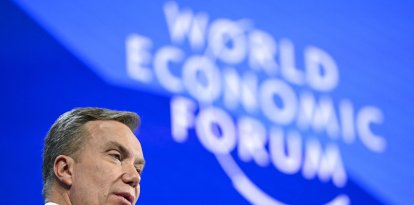US opposed a G7 statement on Ukraine that labeled Russia as the aggressor
G7 members learned about the Trump administration's reluctance to label Russia as the aggressor after Canada distributed the first draft of the statement to the six member nations.

U.S. President Donald Trump
The Financial Times assured that the administration of President Donald Trump objected to calling Russia "the aggressor" in a G7 statement on the third anniversary of the large-scale invasion ordered by the Kremlin against Ukraine. The media outlet explained that "Western officials" who demanded not to reveal their identities disclosed the information. These same officials explained, "We are adamant there must be a distinction made between Russia and Ukraine. They are not the same. The Americans are blocking that language, but we are still working on it and hopeful of an agreement."
A few hours after the Financial Times publication, the New York Times reported that a German government official, whose identity was not disclosed, explained that several G7 members learned about the Trump administration's reluctance to label Russia as the aggressor after Canada distributed the first draft of the statement to the six member nations. According to this official, Canada's version maintained "pro-Ukraine" language, portraying Russia as the invader and the main party responsible for the war launched in February 2022.
According to the Times, the German official explained that once the U.S. team read the draft, it immediately removed any references that could be interpreted as pro-Ukraine, subsequently distributing another neutral statement draft in which there was no reference to Ukraine as the victim country of an invasion or Russia as the aggressor in the war.
Trump v. Zelensky
The news published by both media took place a few hours after a tense exchange of words between President Trump and the president of Ukraine, Volodymyr Zelensky. Through his social network, Truth Social, the Republican leader commented that the Ukrainian leader was a dictator who should accept a peace agreement as soon as possible if he did not want to "run out of country." Previously, Zelensky had stated during a meeting with journalists in Kiev that Trump was living in a "space of disinformation" after assuring that the U.S. president was repeating the same narrative of the Russian government.
Following this impasse, U.S. National Security Advisor Mike Waltz explained that the "insults" issued by Zelensky against Trump were "unacceptable," adding that the Ukrainian government should accept a mineral agreement to achieve peace as soon as possible. For his part, Vice President JD Vance also had words for the Ukrainian president by assuring him that the latter would not achieve anything by "badmouthing" Trump.
























